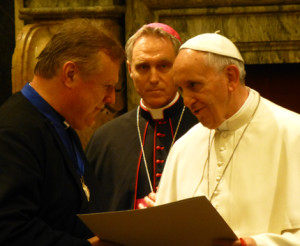
First Things has an excellent article[ref]Unfortunately, you have to subscribe or purchase the article to get it in full.[/ref] in the January issue dedicated to biblical scholar Richard Burridge, who recently became the first non-Roman Catholic to receive the Ratzinger Prize (virtually the Nobel Prize in Theology). The article is a fantastic tribute to Burridge and covers his impact on New Testament scholarship in a brief, but highly informative way. In the 1980s, biblical scholars typically saw the Gospels as legends or mythology (perhaps midrash or something of that nature). But Burridge’s book What Are the Gospels?: A Comparison with Graeco-Roman Biography turned the tide, demonstrating that the Gospels fit the genre of ancient Greco-Roman “Lives” i.e. biographies. In these ancient biographies, 15-25% of the narrative focused on “the hero’s attitude to his death and his final acts or words” (the Gospels range from 15-30%). Furthermore, 25-30% of verbs in ancient biographies “have the hero as the subject, and an additional 15 to 30 percent of the verbs are found in the hero’s sayings, speeches, or quotations. This concentration of verbs is found in no other genre of ancient literature. The gospels have the same concentration of verbs” (pg. 22-23). In later work, Burridge explained that “Greco-Roman biography is an invitation to imitate,” therefore “both what Jesus says and what Jesus does are important” (pg. 23).
Christian philosopher William Lane Craig does a fine job in the video below explaining the contemporary take on the literary genre of the Gospels.[ref]From his 2005 debate with Bishop John Shelby Spong at Bethel College.[/ref] And we have Burridge to thank for it.